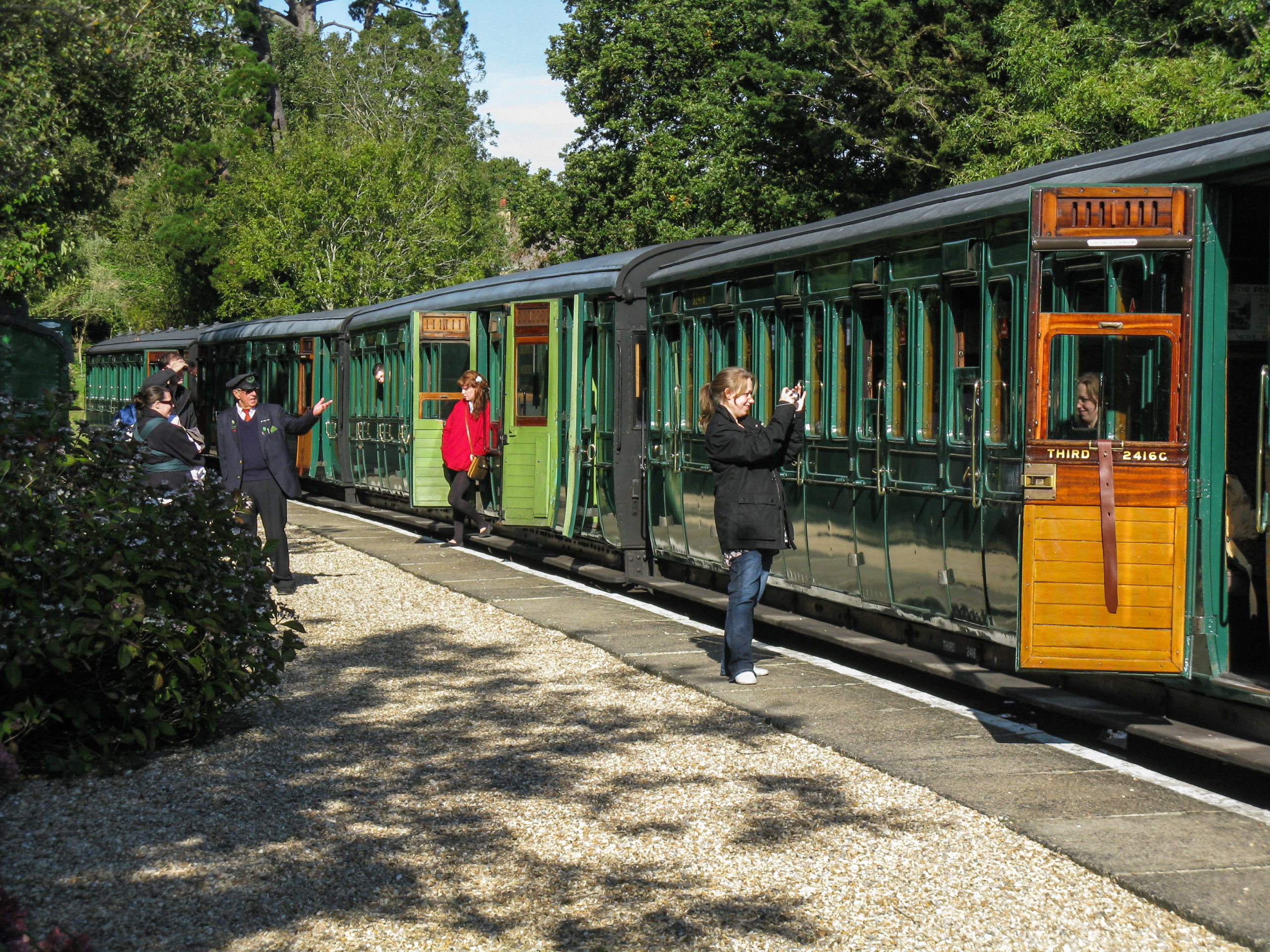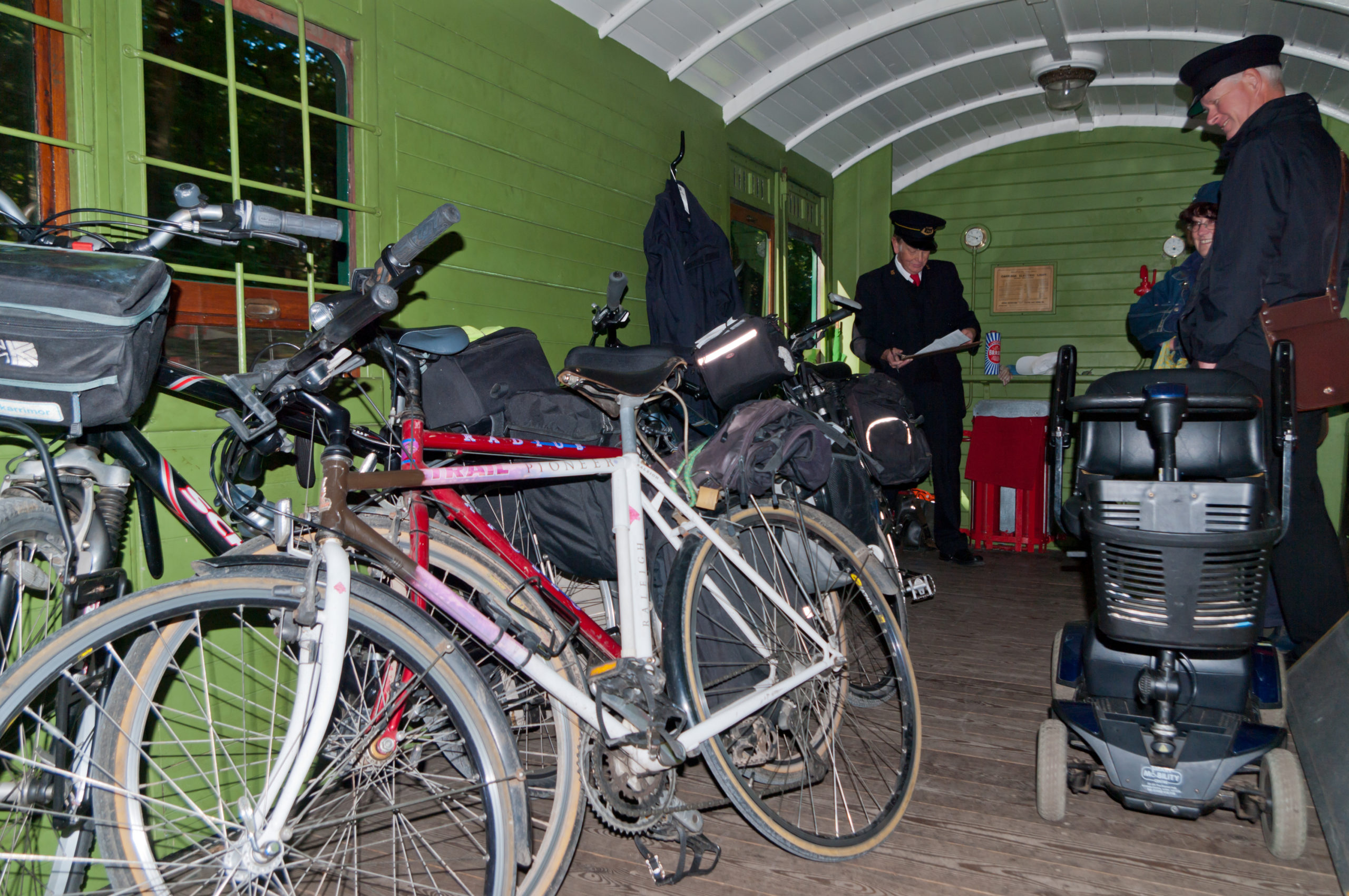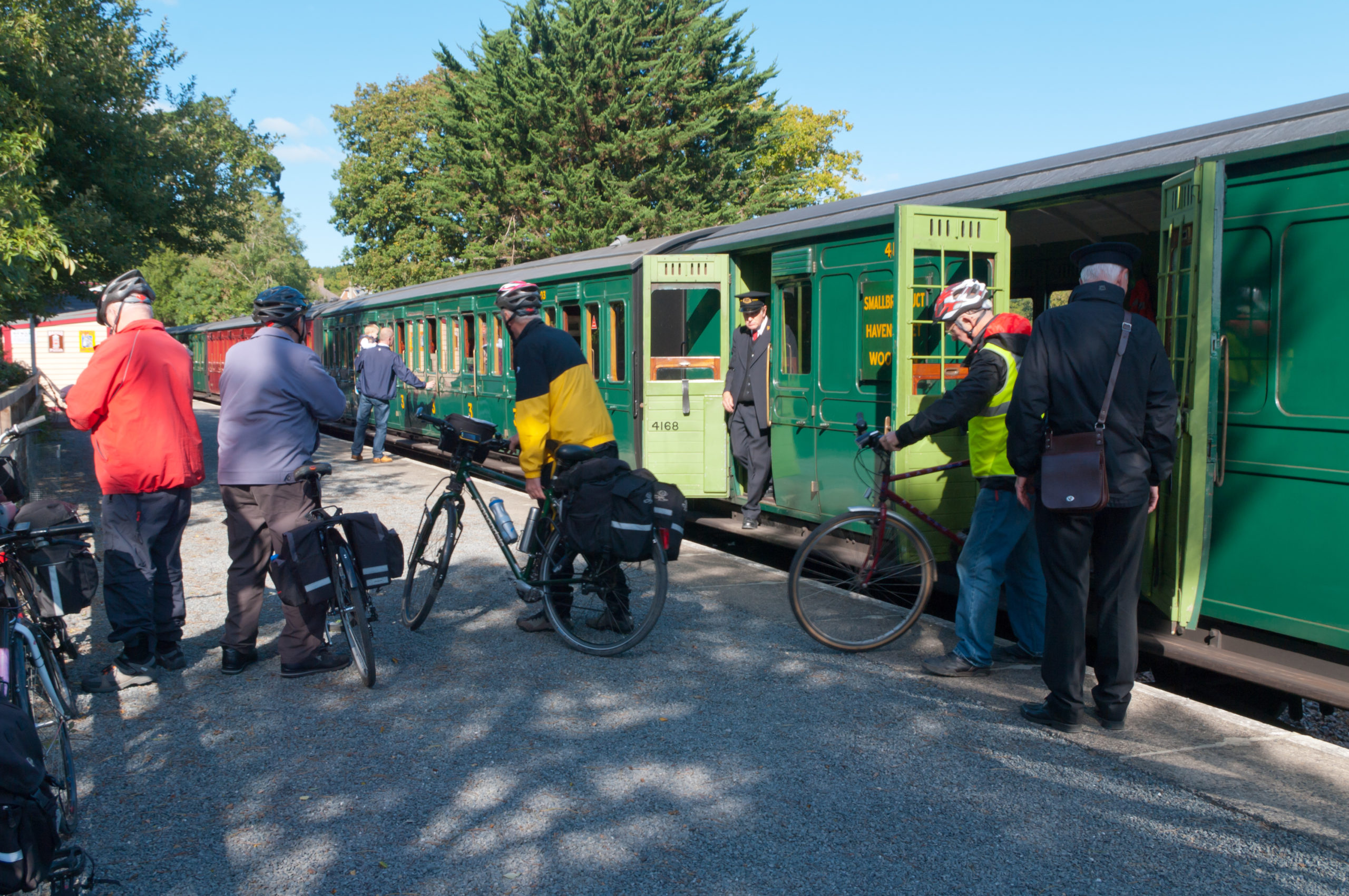 It is between 8.30 and 9.00, and I stroll down Havenstreet station drive ready for another day at the Railway.
It is between 8.30 and 9.00, and I stroll down Havenstreet station drive ready for another day at the Railway.
As the name suggests, the Guard Assist helps the Guard in looking after our visitors. This is a good opportunity to get involved with the train operations without having the formal responsibility for the safety of the train. This role is therefore great for volunteers training to be a Guard, or those of us aged under 18 who aren’t yet old enough to be passed-out for the more senior role.
On arrival, the very first thing I do is sign on. In doing this, I am declaring that I am properly rested and, in all respects, fit for duty. I scan the various notice boards for any new Operating Instructions or Special Traffic Notices, especially any that may concern the operation of the train on which I am rostered. This ensures that I can assist the Guard in an informed manner.
This done, I collect the blue Guard Assist folder which includes all the paperwork I may require during my shift and, in particular, the finance sheet, details of any pre-booked parties as well as Operating Instructions relating to my duties. Secondly, I obtain the Guard Assist tin within which is a brown leather bag containing the float, Permits to Travel, First Class permits and the all-important pen!
Ordinarily, staffing levels permit the rostering of only one Guard Assist. This is fine on one-train service days, but if we are operating a more intensive two-train service it is preferable, although not essential, to have a second Guard Assist working on our Victorian four-wheeled carriage set.

Whatever the set, I head over to the train. If rostered on the bogie set, I make my way to the platform and hop into the brake van where the Guard, Guard Assist, buggies and bicycles travel. I grab some window cleaning equipment and help the platform staff to ensure our passengers have clean windows through which to watch the passing countryside. While cleaning the windows, I also keep an eye open for any defects, passing details to the Guard.
Now that we have a clean train, I liaise with the Guard about the day’s party traffic. In his folder are the reservation labels and we decide which compartments should be allocated to each group. This done, I attach adhesive tape to the labels and place them in the appropriate compartments. We can have several coach parties in a day, in which case we place labels in chronological order. Occasionally, a party will have special requirements such as an accessible compartment. The Guard Assist will ensure these requirements are met.
By this stage, time is usually marching on. At 9.30, most operating staff congregate for the daily Duty Manager’s briefing. This ‘team talk’ is an opportunity for the Duty Manager to inform us about any happenings in the day and for us to raise issues that can then be resolved. It is also an occasion for staff to top up on their essential tea intake!
The first train is due off at 10.05, and we normally start welcoming passengers at around 9.45. The Guard Assist will usually assist platform staff in holding doors open for visitors, directing them towards empty compartments, unlocking First Class compartments where necessary and ensuring that buggies and bikes are stowed in the brake van. The latter is important to ensure that passengers enjoy more space in the compartments and that there are no obstructions should they have to alight in an emergency. It also prevents the woodwork and upholstery from being damaged. Of course, parents are expected to remove their offspring from the buggies before they’re stowed in the guard’s van – the Guard and Guard Assist are required only to keep an eye on buggies, not their live cargo!

While on the move, I assist the Guard in also keeping a good lookout in order to ascertain that our train and passengers are safe. On occasions when trains are very full, passengers may travel in the brake van, which offers an opportunity to chat with our visitors. Sometimes they even ask to ride in the van, perhaps to take photographs of the adjacent locomotive while it is at work. Our operating rules require that passengers may travel in a brake van only when accompanied by a competent person. Therefore, if the train includes a brake van at both ends, I can find myself travelling in the leading van with some passengers whilst the Guard is always in the rearmost van. Again, this is another opportunity to talk with passengers.
Passengers also join our trains at the outer stations of our line – Wootton and Smallbrook – in the case of the latter having alighted from an Island Line service. At Smallbrook, I check the tickets of those joining and perhaps of those traveling in First Class.
If the Guard Assist is also qualified as a Pointsman, they may be asked to operate the lever frames at each end of the line to facilitate the run-round of the locomotive from one end of the train to the other.
Normally, booking clerks are rostered at both Wootton and Smallbrook Junction stations, however if this isn’t the case, the Guard Assist will issue intending passengers with a Permit to Travel. One is sufficient for each family group. These numbered cards give authority to passengers to travel without a ticket to Havenstreet where tickets are purchased and the permits surrendered. Permits are issued by noting on them the number of passengers (e.g. 2 AD, 2 CH). I then sign the permit and add it to the tally of issued permits on the finance sheet.
Many passengers peer through the windows into our comfortable First Class compartments and some enquire about upgrading their tickets. Upgrades can be issued by a booking clerk or the Guard Assist. Again, I will write out a First Class permit in exchange for the upgrade fare and these transactions are also recorded on the finance sheet.
Usually, the day goes smoothly and follows the pattern described above. Exceptionally however, circumstances can increase the Guard Assist’s duties and usefulness. If Island Line trains are cancelled or delayed, the Guard and Guard Assist will walk along the train and inform passengers. Similarly, if our train is delayed we’ll explain the reasons and answer any queries. In a more serious circumstances the Guard Assist must be ready to act upon the Guard’s instructions.
As the final train of the day pulls into Havenstreet, I join the platform staff in sweeping out compartments. The last train of the day is usually quiet (although that particular word is banned on site!) meaning that we can usually clean and lock some compartments before completing the final round trip – thus allowing a slightly quicker getaway! We ensure that all the compartments are locked before I return the folder, tin and key to the Operating Office. If I have issued any permits or upgrades, I take my completed finance sheet and remittance to the Finance Office – if not I ask one of the Booking Clerks to pass a verbal ‘nil-return’.
With everything done, I sign off, walk up the station drive and look forward to my next day as Guard Assist. Perhaps I will be training you?

Get Involved
Please visit the volunteering section of our website if you’re inspired to volunteer at the railway.